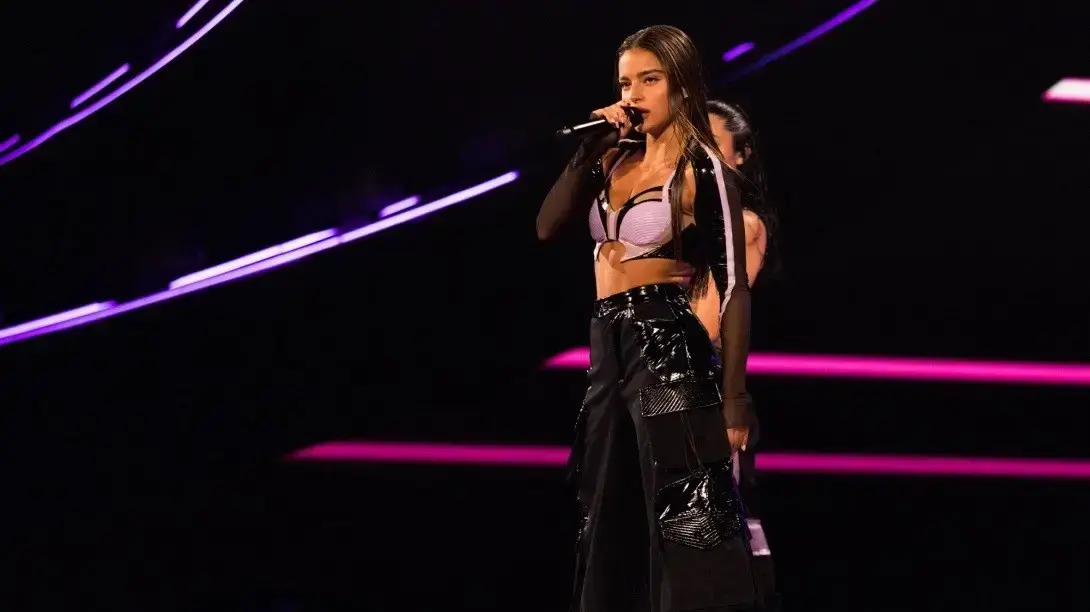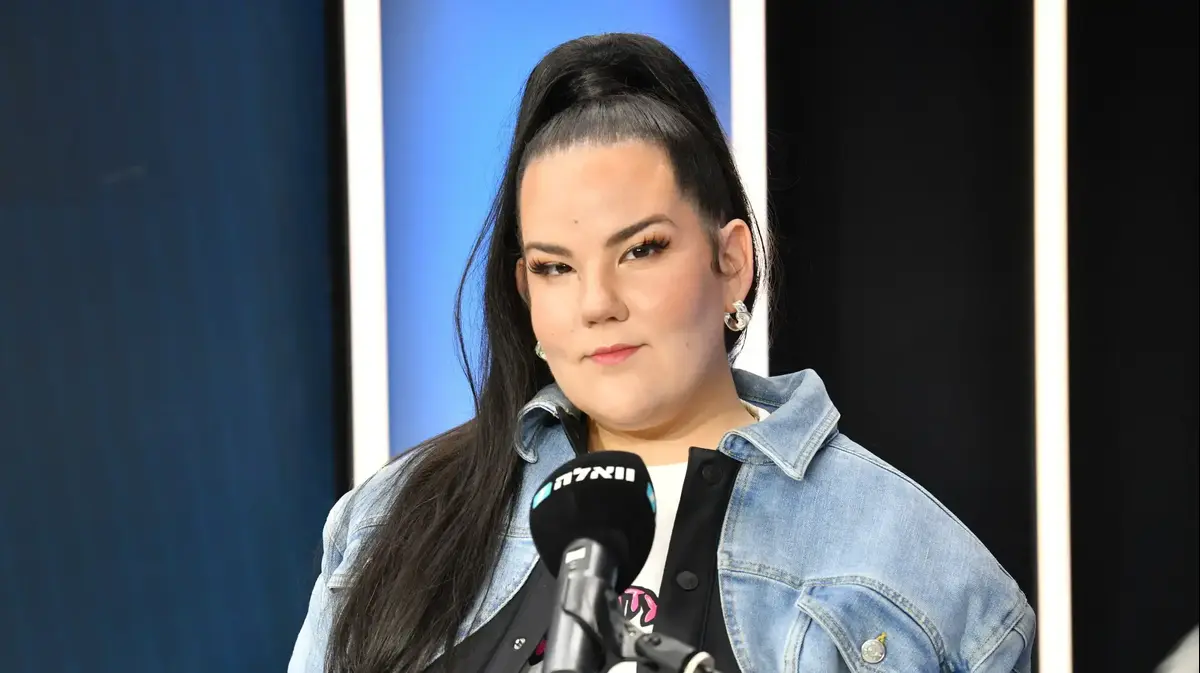Noa Kirel performs the song "Unicorn" at the Eurovision Song Contest 2023 final in Liverpool, England (Corinne Cumming/EBU/Kan 11)
Apart from Noa Kirl, who stood out especially among the world audience at the last Eurovision Song Contest, the representatives of Austria Tisza and Selina, touched on a subject that arouses the wrath of musicians on the biggest stage in Europe.
The singers pointed arrows at some of the entities that use streaming, repeatedly repeating the number 0.003 cents, which represents the amount of royalties creators receive on streaming platforms.
Creators and performers in Israel and abroad have rights that anchor the moral right (the right to credit and completeness of the work and performance) as well as the economic right (the exclusive right to mint, reproduction, transmission and commercialization and the right to pay a proper royalty). Since there are endless works, performances and users - the creators and performers cannot perform the contracts and collect royalties themselves, as individuals - and the handling is carried out through joint rights management organizations.
Similarly, in Israel, management organizations operate in the creators, producers and performers sectors, and these are required to keep up with the pace of technological development that develops frequently. This is the case, inter alia, in the field of artificial intelligence, AI, and various playback and viewing platforms, including international companies such as: Spotify, Apple TV, Disney Plus and more. These platforms have a variety of musical performances and content series, with the best performers from around the world.
Who is hiding behind the work? Many creators, especially young people, are unaware of their rights (Photo: ShutterStock)
Amidst the extensive activity among the content giants that bring cultural treasure to every home in the world, Israel has a great interest in blue and white works and performances, and in an Israeli soundtrack that transmits authenticity and provides an experience for every listener and viewer.
Behind the works are performing musicians endowed with extraordinary hard-earned talent expressed in unique performances that catch up from scene to scene. The performance that plays accompanies us almost everywhere and at all stages of our lives, and we are exposed to it in infancy. These performances are a source of income for the performing musician. That's his job.
In Israel 2023, we identify three main challenges to exercising performers' rights:
Public challenge to promote Hebrew music
In the past year, Elam distributed royalties to performing musicians (musicians, conductors and orchestras) totaling about NIS 9 million. Royalties were collected mainly from traditional media outlets (television networks, radio and cellular channels) as well as from businesses and institutions that perform publicly.
Many businesses see the value and contribution of Israeli music, more and more play it, thus contributing to the enjoyment and attraction of their customers, strengthening the business and strengthening and encouraging Israeli culture and pride.
Legislative and legal
challenge Not all of yesterday's legislation is relevant today, the Performers' Rights Law, 5744-1984 and the Israeli Copyright Ordinance need updating. Thus, the Performers' Rights Law is not equal to its counterpart – the Copyright Law, 5768-2007, which applies to creators, for example in the matter of making it available to the public, the duration of the right's existence, and more.
As for the Copyright Ordinance, which anchors the compensation that the state must pay to creators, producers and performers for loss of revenue and infringement of rights caused by the sinking or reproduction of tapes for private and domestic use, the definition of the term "empty tape" is archaic and requires adjustments to technological development to include in the definition the means possible today of drowning or reproduction (such as: smartphones, USB flash drives, etc.).
Technological development is welcome and desirable, but it does not mean that rights should be used wanton, but that uses of rights must be paid.
Public challenge to reach the general performing
public There is a public of musicians who are not aware of their rights and do not come to collect their royalties. Elam is working during this period to increase awareness among musicians to come and check their eligibility to receive royalties for their performance.
The Israeli authorities are responsible for safeguarding the rights of Israeli performers and copyrights, amending legislation and adapting regulation and interpretation adapted to the law in accordance with technological developments.
At the same time, there is importance in the actions of rights organizations to raise awareness and support for Israeli performance and creation, to protect the rights of performers, and to reach maximum performers entitled to royalties, inter alia by exposing young and veteran musicians to their rights through meetings in schools and music academies, as well as actions to promote and amend legislation that will help enforce the issue.
The success of the Israeli performance of Unicorn at Eurovision gives Israeli music a tailwind and great pride, now we must make sure that everyone responsible for the melody of our lives receives his salary in return.
Adir Vishnia is the CEO of Elam – an Israeli association for the rights of performing musicians (RA)
- money
- Opinions
Tags
- creation
- Music 24
- Noa Kirel














